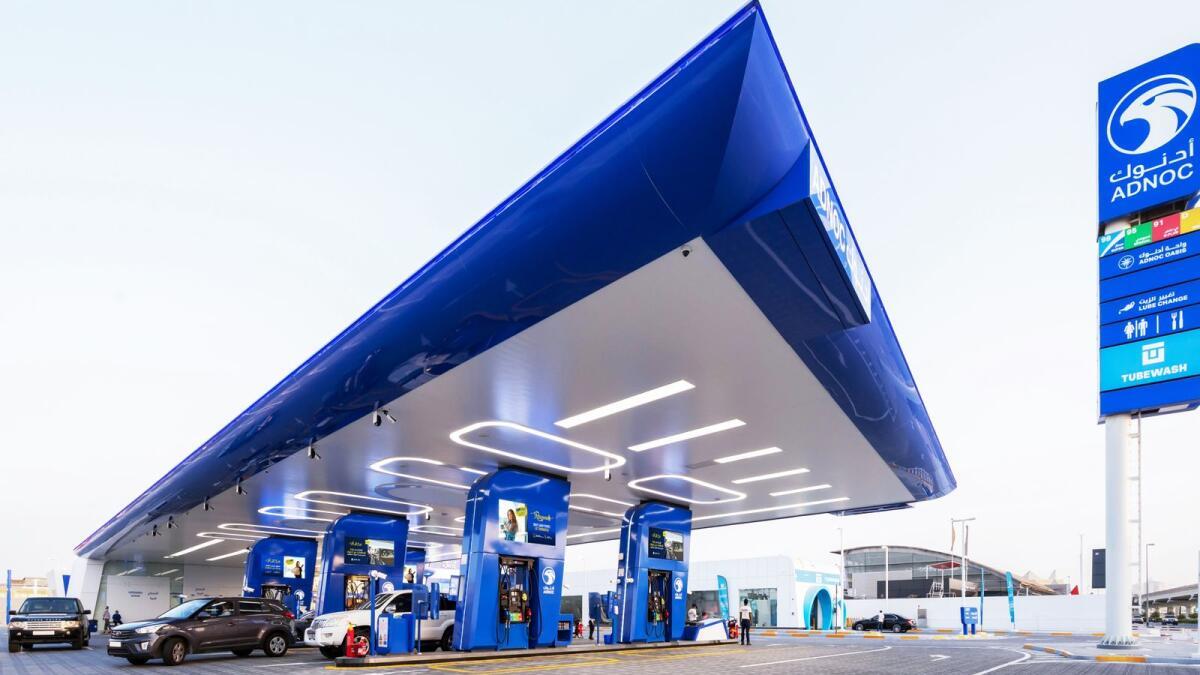
UAE: Lower Petrol Prices To Continue As Oil Glut Looms
The International Energy Agency's (IEA) projection of an oversupply of 1.4 million barrels per day this year is a critical factor that could keep oil prices subdued, bringing in prolonged relief from fuel-induced inflation in the coming months.
For the UAE, which has linked its fuel prices to global oil markets since 2015, adjusting rates monthly for transparency, the oversupply of 1.4 million barrels per day is a critical factor that could keep oil prices subdued, keeping consumer price inflation under check,
For motorists in the UAE, this means lower costs at the pump. Reduced fuel prices can lead to increased disposable income for households, allowing them to allocate their resources towards other sectors of the economy. Businesses, particularly those in transportation and logistics, will also benefit from decreased operational costs, enhancing their competitiveness in both local and international markets.
Petrol and diesel prices in the UAE remained unchanged in January 2025 compared to December 2024: Super 98 petrol is priced at Dh2.61 per litre, Special 95 petrol at Dh2.50 per litre, E-Plus 91 petrol at Dh2.43 per litre and diesel at Dh2.68 per litre. The price stability follows months of declining fuel prices in 2024, with Super 98 petrol dropping from a high of Dh3.34 in May to the current rate of Dh2.61.
Ipek Ozkardeskaya, senior analyst at Swissquote Bank, said from a technical perspective, crude oil is now in the medium-term bullish consolidation zone and should remain there above the $72.85 per barrel support.“But the growing concerns regarding China's inability to boost growth could limit the upside potential.”
Market analysts argue that the anticipated lower oil price scenario not only presents opportunities for consumers but also poses challenges for investors and businesses in the GCC region, heavily relying on oil revenues.
Energy market experts said the rise of renewable energy sources and the push towards electric vehicles (EVs) has altered the traditional demand patterns for fossil fuels. As countries strive to meet climate goals, the demand for oil is projected to stabilize or even decline.
In the UAE, the Arab world's second-largest economy, the current pricing structure of petrol and diesel is influenced by both global oil prices and local government policies. However, the predicted oversupply presents a unique opportunity for consumers, suggesting a shift in the pricing paradigm.
This oversupply is primarily driven by increased production from non-Opec countries, advancements in extraction technologies, and a potential slowdown in demand growth. As a result, the market is likely to experience downward pressure on prices, benefiting consumers.
The UAE's economy is closely tied to oil revenues, with fluctuations in oil prices having significant implications for government budgets and economic planning. Lower fuel prices can stimulate economic activity by reducing costs for consumers and businesses, potentially leading to increased spending in other sectors such as retail, tourism, and services.
However, the scenario of prolonged low oil prices presents challenges for GCC investors and businesses that must navigate the complexities of an oil-fueled economy in transition.
The region has historically relied on oil revenues to fund public services and infrastructure projects. If oil prices remain low, governments may face budgetary constraints, leading to potential cutbacks in public spending and investment, experts said.
Additionally, the GCC countries need to diversify their economies away from oil dependency. This transition will require strategic investments in renewable energy, technology, and infrastructure, creating opportunities for investors who are willing to adapt to the changing landscape.
The oil market is inherently volatile, and while lower prices in 2025 may seem advantageous, businesses must prepare for potential fluctuations. Sudden changes in geopolitical dynamics, natural disasters affecting production, or unexpected shifts in global demand could all contribute to price instability.
According to investment experts, the volatility necessitates the development of robust risk management strategies for businesses.“Companies should consider diversifying their energy portfolios, investing in alternative energy sources, and enhancing operational efficiencies. Moreover, businesses in sectors such as renewable energy, electric vehicles, and energy storage could see increased demand as consumers and governments shift towards more sustainable practices.”

Legal Disclaimer:
MENAFN provides the
information “as is” without warranty of any kind. We do not accept
any responsibility or liability for the accuracy, content, images,
videos, licenses, completeness, legality, or reliability of the information
contained in this article. If you have any complaints or copyright
issues related to this article, kindly contact the provider above.
















Comments
No comment